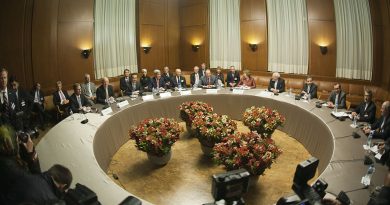FOCUS on Frozen Conflicts: Israel-Palestine
Hamzah Khan
Staff Writer
The Israeli-Palestinian conflict made recent headlines in May after Israeli forces launched devastating airstrikes on Gaza. This latest Gaza war was sparked after Israeli Defense Forces raided one of the holiest sites in Islam, the Al Aqsa Mosque, during the holy month of Ramadan. Israeli forces dispersed worshippers with flashbangs and rubber bullets, wounding nearly 300 people, reports The Guardian.
Israeli settlers were also subsequently in the process of evicting Palestinian residents from a neighborhood in East Jerusalem called Sheikh Jarrah, which received international attention. Palestinian militants of Hamas subsequently launched thousands of rockets into Israel, killing 12 people including two children. The Israeli military responded by launching airstrikes on Gaza, leveling residential buildings, and killing nearly 260 people including 66 children, says Human Rights Watch. The International Criminal Court announced earlier this year that it would investigate war crimes committed both by the Israeli military and Palestinian militants in the Occupied Territories.
According to the Council on Foreign Relations, the conflict began in 1947 when the UN partitioned the British Mandate for Palestine, creating separate Jewish and Arab states. The neighboring Arab countries rejected this plan and attacked. The Jewish state was able to defeat the Arab armies and the State of Israel was established in 1948 as a national homeland for the Jewish people. Palestinians refer to this war as “the Nakba” or catastrophe, because nearly 750,000 Palestinians were expelled from their homes.
The 1967 War, decades later, resulted in Israel permanently occupying the Palestinian territories of East Jerusalem, the West Bank, and the Gaza Strip, along with the Syrian Golan Heights. The Israeli government established barrier walls throughout the West Bank settlements in response to suicide bombings by Palestinian militants during periodic uprisings, or Intifadas, against the occupation. Eventually, a Palestinian Authority was established in the 1990s after the Oslo Accords, which afforded Palestinians some levels of autonomy but no mechanisms for achieving statehood or sovereignty.
Earlier this year, Human Rights Watch and B’Tselem, a prominent Israeli human rights group, both declared that Israel is an apartheid state. According to Human Rights Watch, the 6.8 million Palestinians living between the Jordan River and the Mediterranean Sea are all subject to Israeli rule and experience varying degrees of discrimination depending on where they live. Many Palestinian families who were expelled from their homes in 1948 live as refugees in the occupied territories and are denied the right to return home.
Since 1967, Israel has militarily occupied the West Bank and Gaza and annexed East Jerusalem, while establishing Israeli settlements in these areas. Israel withdrew settlements from Gaza in 2005, but after Hamas took over, they, along with Egypt, imposed a restrictive blockade of the territory, effectively controlling all movement in and out of Gaza as well as the sea and airspace. Settlers in the Occupied Territories have full Israeli citizenship and rights under the Israeli constitution—however, Palestinians living in those same areas cannot vote in Israel. The Institute for Middle East Understanding reports that there are also more than 60 discriminatory laws against Palestinians in effect in Israel. A similar nation-state law in 2018 codified the right to self-determination in Israel is unique to the Jewish people, although nearly 20 percent of people living in Israel are non-Jewish. B’Tselem has called this arrangement a “regime of Jewish supremacy.”
The UN and international community consider the settlements in the West Bank illegal and an obstacle to a two-state solution. About 600,000 settlers are living in the West Bank and East Jerusalem, while Israel has administrative control of nearly 60 percent of the territory, according to Al Jazeera. There have also been mass evictions in Palestinian neighborhoods in East Jerusalem, which many Palestinians hope will become the capital of a future Palestinian state, reports BBC News. Haaretz reports that the number of violent incidents against Palestinians by settlers has nearly doubled in 2021 due to “a permissive atmosphere” created by Israeli forces.
Israeli Prime Minister Naftali Bennet announced that under his government, there will be no official annexation of the West Bank nor an establishment of any Palestinian State, reports The Times of Israel. At the UN General Assembly this year, Palestinian President Mahmoud Abbas gave Israel one year to withdraw from the occupied territories or the Palestinian Authority would withdraw recognition of Israel, reports Al Jazeera. However, the Palestinian Authority has lost the support of many of its Arab neighbors, with Arab countries like the UAE, Bahrain, Morocco, and Sudan normalizing relations with Israel through the U.S.-brokered Abraham Accords in the hopes of establishing peace in the region, reports Reuters. Under the status quo, a permanent resolution looks increasingly unlikely as the dream of a two-state solution continues to fade.

